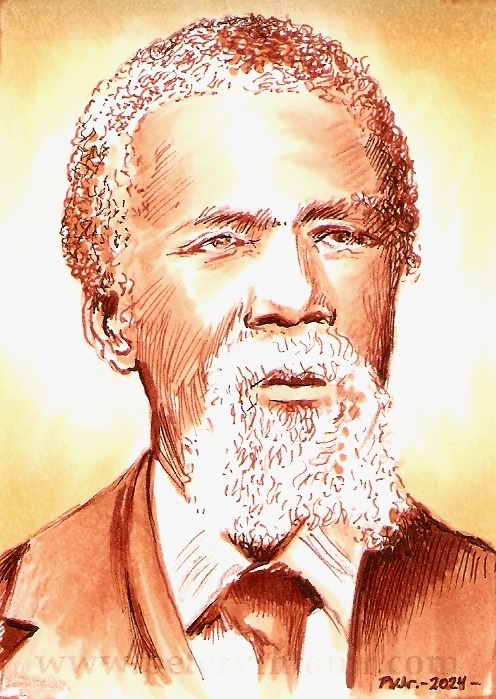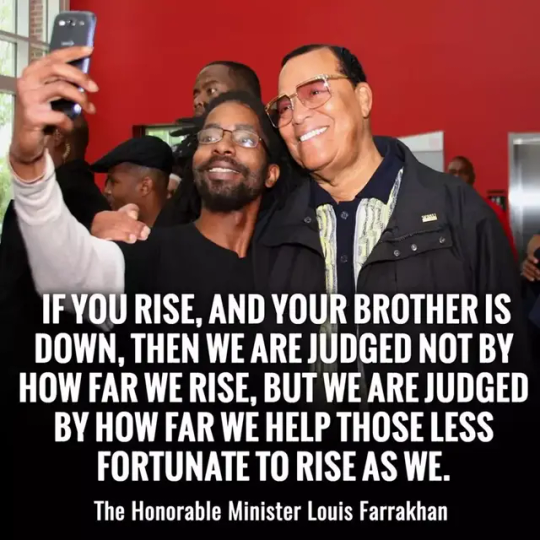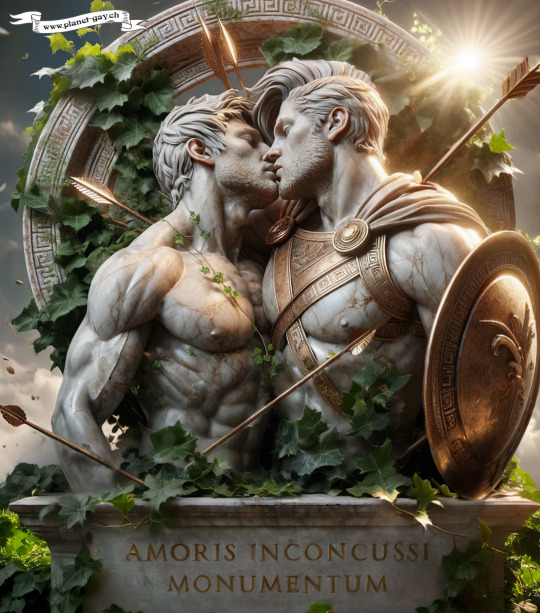#CivilRIghts
Explore tagged Tumblr posts
Text

Black people have culturally subsidized this country since our arrival
#blackisbeautiful#blacktivism#black history#the black narrative#activism#american black radical resistance#resistance#protest#icon#vote#voting rights#get out the vote#civilrights#civil rights movement#belovedcommunity#blackpeople#rootingforeverybodyblack#allblackeverything#problack#panafricanism#afrocentrism#blackpeopleinamerica#blackactivism#blackpride#blackpower#blacktumblr
2K notes
·
View notes
Text

"No federal employee has a right to their job. Each is operating under the Executive Branch—as FBI agents do—serving at the pleasure of the President and can be dispatched to any assignment commanded, even if that station is to watch ice melt at the South Pole…"
READ & LISTEN NOW: https://www.undergroundusa.com/p/the-purge-has-begunand-not-too-soon
#ConstitutionalRights#FBIInvestigation#ExecutiveBranch#DeepState#PoliticalPersecution#USConstitution#FederalEmployees#January6th#CivilRights#GovernmentAccountability#FreeSpeech#Trump#NeoMarxism#MAGA#Media#Podcast#Constitution#USA#Woke#Democrats#Politics#News#Truth
52 notes
·
View notes
Text
Children's Crusade of 1963
#black history#Birmingham#blacklivesmatter#black lives matter#american history#black history month#happy black history month#black people#black children#non violence#protests#60s#1960s#civilrights#civil rights movement#black excellence#racial injustice#our youth
29 notes
·
View notes
Text
Forever Bernie
#politics#bernie sanders#civil rights movement#civilrights#politicians#us politics#independent#2024 presidential election#black lives matter
18 notes
·
View notes
Text

"I was working for Mr. T. L. Kearny on the morning of the day of the election, and did not think of voting until he came out to the stable where I was attending to the horses and advised me to go to the polls and exercise a citizen's privilege."
Good god, people. I sure misjudged a hell of a lot of you; it is obvious more studying is called for. Way more. As in, "lessons-that-may-soon-be-illegal" way more.
Since we're already fresh on the subject of elections, let's get right into it with a look at the life of Thomas Mundy Peterson. Born enslaved in 1826 New Jersey, Peterson and his family were later manumitted upon their owner's passing, and moved to Perth Amboy. Peterson married and worked as a custodian and general handyman at Perth Amboy's very first public school. Active in local politics, at the age of 46 Peterson had been a participant in a local ballot initiative to revise the town's existing charter; in this instance, whether or not to abandon their 1798 charter entirely and reincorporate as a township. (Spoiler alert: they did neither and became a city in 1844.)
On March 30, 1871, less than two months after the ratification of the Fifteenth Amendment, Peterson voted in favor of retaining the town's existing charter --thereby making him the very first Black American to cast a ballot in any kind of post-Civil War election.
But for one unsurprising anecdote about a white voter at the polling place crumpling up their own ballot in disgust at the sight, Peterson's civic action went largely unremarked-upon (in fact Peterson even went on to be elected to the local city council). It was as true then, as it is now, that local elections are where the most immediate consequences happen. But gradually over time, the symbolism and the larger historical impact of Peterson's quiet moment took on much greater national significance. In 1884 the community raised the equivalent of $1800.00 to present Peterson with a medal featuring Abraham Lincoln's profile in recognition of his milestone --this medal is now part of the collection of Xavier University. In 1989 the public school at which Peterson once worked (P.S. No. 1), was renamed after him.
====
And further to the above subject: Fascism is a hell of a drug, people. One really doesn't see it for what it is when it finally arrives --no concept of just what it is that you've invited into your lives, just because eggs are inconveniently pricey or because you'd rather your kids not be exposed to history lessons like this one. Fascism never merely visits; it takes up permanent residence. Our Black brothers and sisters (especially the sisters) understood that deep in their bones prior to the Civil War, during Reconstruction, during Jim Crow, and during the Civil Rights movement. The rest of us need to internalize that, too. The past 400 years aren't "just" Black history, as if it all only belonged to a specific segment of the population. It is our history. All of us; inextricably connected to it. If we don't study it and learn about it; if we pivot to the deliberate ignorance that fascism so gleefully celebrates, then we all lose.
Racism (and all its cousins: anti-Semitism, xenophobia, homophobia, etc.) has been emboldened, running unchecked --to say nothing of truly terrifying old-school misogyny. (And yeah, go look up the word misogynoir if you haven't already). Of more immediate concern we've got... what, 70 days or so? 70 days to recalibrate, retool, get at least some guardrails up. In that time interval, please reach out to one another --check on your communities and keep a close eye on local issues, not unlike Thomas Mundy Peterson. Offer what help you can spare. Lotta desperation and panic floating about; folks are afraid of losing a lot of things in 2025 and beyond --you know, minor trifles like health care, insurance, income, savings, civil rights, autonomy. They're going to be looking for a connection. If studying these Black biographies these past 4+ years has taught me one thing, it is that authoritarianism flourishes when people isolate --whether forced upon them or on one's own. The moment folks break that pattern and start connecting with one another, the bullies proveably take a cautious step back. (Notice I didn't naïvely use the word retreat.) So look out for one another and keep each other afloat; the bullies hate that.
In the meantime for my part I'm going to keep doing the two things I know I am legitimately good at: teaching and drawing. Therefore I'll keep providing this resource until I am forcibly stopped from doing so.
If you're new to this series, start here.
#black lives matter#black history#thomas mundy peterson#civilrights#juneteenth#new jersey#voting rights#15th amendment#teachtruth#dothework#showup
33 notes
·
View notes
Text







Happy 100th birthday to the honorable Malcom X, el-Hajj Malik el-Shabazz
Born on May 19th, 1925.
My Alma mater was books, a good library... I could spend the rest of my life reading, just satisfying my curiosity.
#malcom x#black history#happy birthday#civilrights#leader#hero#father#husband#civil rights movement#civil rights leader#black icons
9 notes
·
View notes
Text

This is universal. I may not share his faith, but he is a hero of mine. Everytime we have someone who STANDS UP for us, as a WARRIOR, they try to slander them! I love this man!
#LouisFarrakhan#Farrakhan#NOI#BlackPower#BlackNationalism#LouisFarrakhanQuotes#BlackHistory#CivilRights#SocialJustice#Empowerment#blackunity#blm#maga#crt#blackpride#knowledgeofself
19 notes
·
View notes
Quote
Democrats have tried since 2021 to pass a voting rights act but have been stymied by Republicans, who oppose such protections. On March 5, 2025, Representative Terri Sewall (D-AL) reintroduced the John R. Lewis Voting Rights Advancement Act, which would help restore the terms of the Voting Rights Act, and make preclearance national. The measure is named after John Lewis, the Student Nonviolent Coordinating Committee leader whose skull law enforcement officers fractured on the Edmund Pettus Bridge. Lewis went on from his days in the Civil Rights Movement to serve 17 terms as a representative from Georgia. Until he died in 2020, Lewis bore the scars of March 7, 1965: Bloody Sunday.
Heather Cox Richardson
18 notes
·
View notes
Text

I think we all know what this is about...let's take you to see a psychologist, son.
#civilrights#transrights#gayrights#lgbtq+rights#politics#humor#lol#antifascist#antifascismo#gender equality#gender cult#absurdism#absurdity#absurdo#autism#neurodivergent#antiracism#trans rights#trans pride#nonbinary pride#nonbinary artist#intersex rights#intersex#intersex pride#boycott usa#elongated muskrat#us politics#american politics#trans#transgender
17 notes
·
View notes
Text
In a world where silence often speaks louder than words, this poem confronts the cost of our quiet complicity. For those who still believe in the power of voice, this is for you.
The Price of Silence-
They told us silence was wisdom,
that biting your tongue was brave.
But silence is a blade we hold inward—
cutting truth from our throats
while the world burns politely.
It doesn’t keep the peace—
it buries it.
A neighbor dragged out at dawn.
You shut the blinds.
A child asked why the world hurts.
You changed the channel.
A woman stood and screamed,
“This is wrong!”
You said, “She should’ve known better.”
But the silence took notes.
It learned your posture,
wore your calm like armor.
It held the door for the powerful,
nodded along to the lie,
and whispered in the dark,
“Go ahead. They won’t stop you.”
And still, the children are watching—
eyes wide in a world that keeps flinching.
They see who speaks
and who lowers their gaze.
They’re learning what courage costs,
what silence buys,
and who will bleed
for a better world they might inherit.
So speak.
Even if your voice shakes.
Even if no one claps,
or listens,
or stays.
Because silence is a currency—
and if you don’t spend your voice,
they’ll spend your future.
#ResistTheLies#ThePriceOfSilence#WeAreHuman#JusticeForAll#CivilRights#DefendDemocracy#PoetryOfResistance#SocialAwakening#social awareness#VoiceOfThePeople#united we stand#poetry#us politics#artists on tumblr
7 notes
·
View notes
Text

BREZILLA 🦖
#breonna hanma#@brezilla00#blackisbeautiful#blackactivism#blacknationalism#black identity#blackcommunity#afrocentrism#panafricanism#rootingforeverybodyblack#blackhistory#blackhistorymonth#the black experience#blackconsciousness#theblacknarrative#blacktivism#belovedcommunity#blacklivesmatter#civilrights#allblackeverything#fortheculture#blackculture#blackpride#blackpower#blackgirlmagic#blackgirlaesthetic#wutang#wu tang clan#wu tang is for the children#blacktumblr
345 notes
·
View notes
Text
youtube
#ConstitutionalRights#FBIInvestigation#ExecutiveBranch#DeepState#PoliticalPersecution#USConstitution#FederalEmployees#January6th#CivilRights#GovernmentAccountability#FreeSpeech#Trump#NeoMarxism#MAGA#Media#Podcast#Constitution#USA#Woke#Democrats#Politics#News#Truth#Youtube
19 notes
·
View notes
Text
instagram
latincity
Juneteenth marks a defining moment in U.S. history on June 19, 1865, when federal troops arrived in Galveston, Texas, and enforced freedom for the last enslaved African Americans, more than two years after the Emancipation Proclamation. It is a day that honors Black resilience, liberation, and the ongoing struggle for justice. 📌 Juneteenth Timeline: ➡ 1863 — The Emancipation Proclamation is issued, declaring enslaved people free in Confederate states. ➡ 1865 — Juneteenth: General Order No. 3 is read in Texas, ending slavery there. ➡ 1872 — Black leaders in Texas purchase Emancipation Park (Houston) to celebrate Juneteenth. ➡ 1979 — Texas makes Juneteenth an official state holiday. ➡ 2021 — Juneteenth becomes a U.S. federal holiday. 💡 Why it matters today: Juneteenth reminds us that freedom was delayed and had to be fought for. It teaches that the struggle for Black liberation has strengthened democracy for all of us. It is both a celebration and a call to action. The fight for equality, justice, and true freedom continues. ✊🏾 This Juneteenth, reflect on the history. Share the story. Honor the struggle.
#Juneteenth#JuneteenthHistory#FreedomDay#BlackHistory#CivilRights#TheirFightOurFreedoms#HonorTheLegacy#BlackLiberation#KnowYourHistory#LatinoSolidarity#AfroLatino#black lives matter#african american#black history month#blm#visibility#Instagram
3 notes
·
View notes
Text
Out of spite....
#black history#civilrights#civil rights#black liberation#black lives matter#blacklivesmatter#black excellence#black americans#african american#african america history#black pride#black unity#black people#immigrants#immigration#black culture#black women#racial injustice#anti blackness#project 2025#project2025#vote blue#kamala harris#kamala 2024#vote kamala#presidential election#donald trump#republican#trump supporters#maga 2024
44 notes
·
View notes
Text

Monument of Unwavering Love Historical Figures and the Persecution of Their Love
From antiquity to the 20th century, significant individuals who were in homoromantic relationships often faced challenges and criticism. Their stories are testimonials to the courage and resilience in the face of societal hostility.
Hadrian and Antinous: Love Against the Empire The relationship between Roman Emperor Hadrian and his beloved Antinous was a mix of deep affection and public scandal. After the mysterious death of Antinous, Hadrian deified him, which caused discontent among the Roman elite. This worship was not only an act of mourning but also a defiance of the norms of Roman society.
Oscar Wilde: The Price of Truth In Victorian England, the famed writer Oscar Wilde paid a high price for his homosexual relationships. His conviction for "indecent acts" led to a harsh prison sentence that ruined his health and destroyed his career. Wilde's case was a clear signal of the intolerance toward homosexuality during this era.
Alan Turing: A War Hero Betrayed by His Own Country Alan Turing, whose work was crucial to the Allied victory in World War II, was persecuted for his homosexuality. At a time when homosexual acts were illegal in Britain, Turing underwent a medical treatment mandated by the court, which was seen as an alternative to imprisonment, and contributed to his premature death.
Frida Kahlo: An Art Icon in the Gender Norms Crossfire Although Frida Kahlo's bisexual relationships were not the cause of public animosity, she lived in a society where such relationships were considered taboo. Kahlo's self-portraits and works reflect her personal struggles and her courage to challenge the conventional gender roles of her time.
Bayard Rustin: In the Shadow of the Civil Rights Movement As an openly gay man and a key advisor to Martin Luther King Jr., Bayard Rustin often had to put his sexuality behind his work for the civil rights movement in the 1960s USA. Despite his significant contributions, he was attacked by opponents both inside and outside the movement because of his homosexuality.
Leonard Matlovich: A Soldier Against Silence Vietnam War veteran Leonard Matlovich, who appeared on the cover of "Time" magazine, was one of the first to challenge the ban on homosexuality in the U.S. military. His fight against discrimination sparked a national discussion about the role of LGBTQ+ individuals in service.
Base image generated with DALL-E, overworked with SD-1.5/SDXL inpainting, manual editing and composing.
#LGBTQHistory#Pride#UnwaveringLove#CivilRights#HistoricalFigures#LoveWins#LGBTQHeroes#SocialChange#EqualityForAll#gayart#queer#gaylove#gayhistory
19 notes
·
View notes
Text

"Somebody has to do it. It's on my shoulders... You've got to speak up. These things are not going to come easy."
Another name for whom history already weaves a grand tapestry: Medger Wiley Evers. Less-known than his role in crystallizing the modern civil rights movements, is his time with the United States Army during World War II, and the life lessons he internalized while serving.
Born in 1925 Decatur, Mississippi, Evers managed to excel academically even during a childhood of extreme poverty and during a time of oppressive Jim Crow laws. He was also no stranger to cruel injustices, nor the horrors of lynching. In 1943, with WWII raging at full force, seventeen year-old Evers enlisted with the U.S. Army and was detailed to the 657th Port Company, a segregated unit. The 657th was deployed to Europe as part of a larger logistics organization that delivered food, fuel, and ammunition to the front. During his time in the European theater, Evers continued to endure bigotry and undisguised racism from his own country, but also witnessed firsthand how French Black servicemen were treated with total equality. To say this double standard made an impact is likely underselling it.
Perhaps most significantly, Evers's unit saw action on D-Day in Normandy, as part of Operation Overlord. By the time Sgt. Evers completed his service with an honorable discharge in 1946, he had accumulated a Good Conduct Medal, two Bronze Service Stars, and the World War II Victory Medal. He returned to a Decatur culture largely unchanged by the war, and promptly returned to the front lines, so to speak --trying to improve conditions for his fellow Black Americans, beginning with voter registration drives and speaking out very publicly in favour of integration. His (belated) GI benefits were put towards earning a BA at Alcorn State University, and into a life that would eventually encourage boycotts, elevate him to a prominent leadership role in the NAACP, and investigating brutal murders and lynchings in the South, including that of Emmett Till (see Lesson #110 in this series). His assassination in 1963 was in many ways a bellwether for passage of the Civil Rights Act a year later.
Sgt. Evers is buried at Arlington National Cemetery. This is an indisputable fact in case there was any lingering fuzziness about that.
#blackhistory#civilrights#departmentofdefense#usarmy#arlingtoncemetery#wwii#dday#normandy#medgarevers#emmetttill#censorship#donotcomplyinadvance#teachtruth#showup#dothework
5 notes
·
View notes